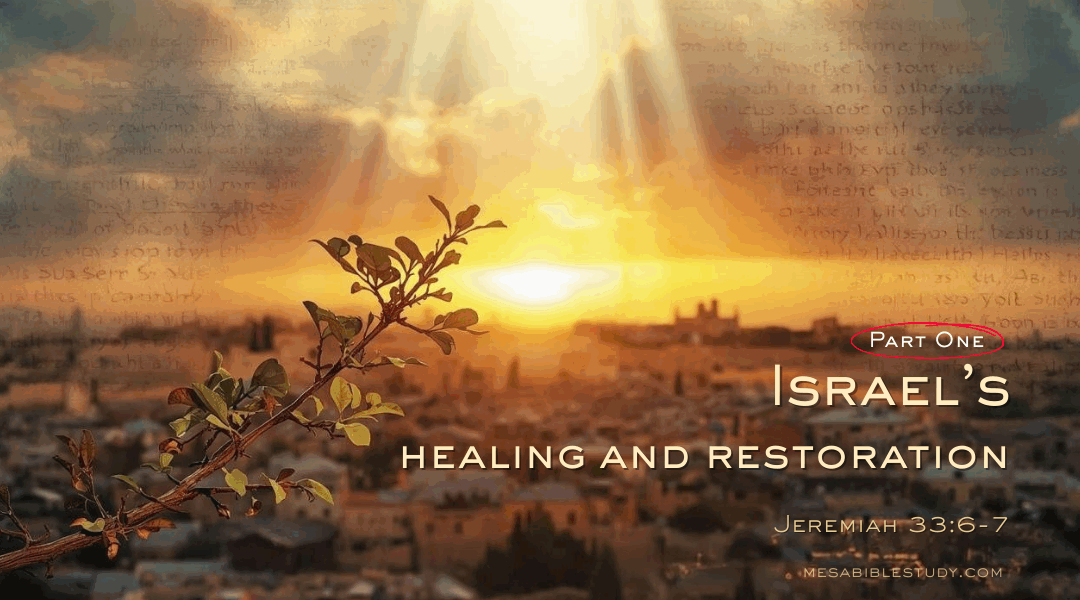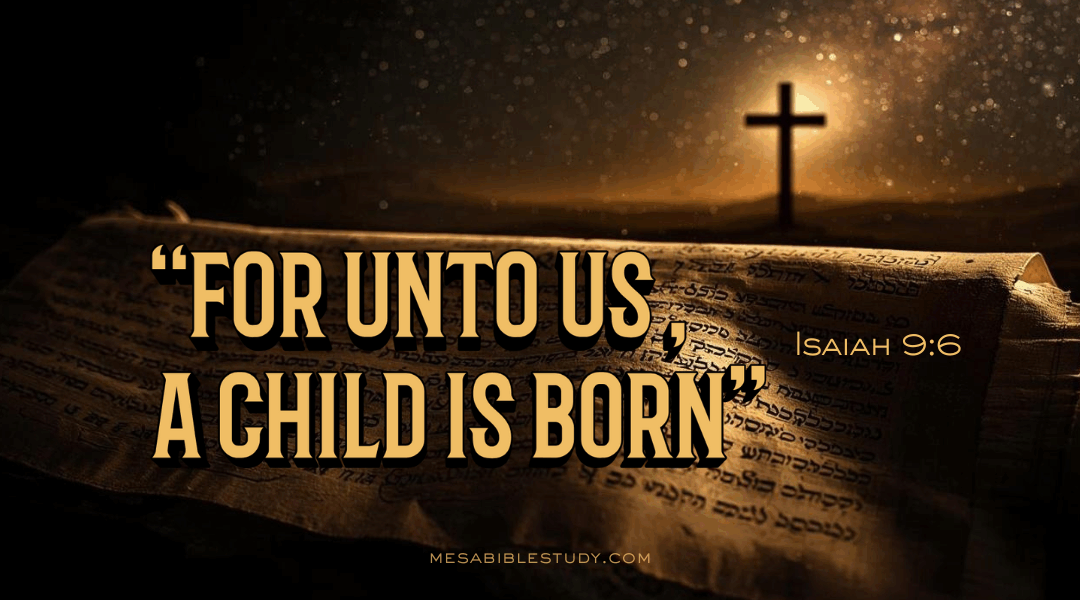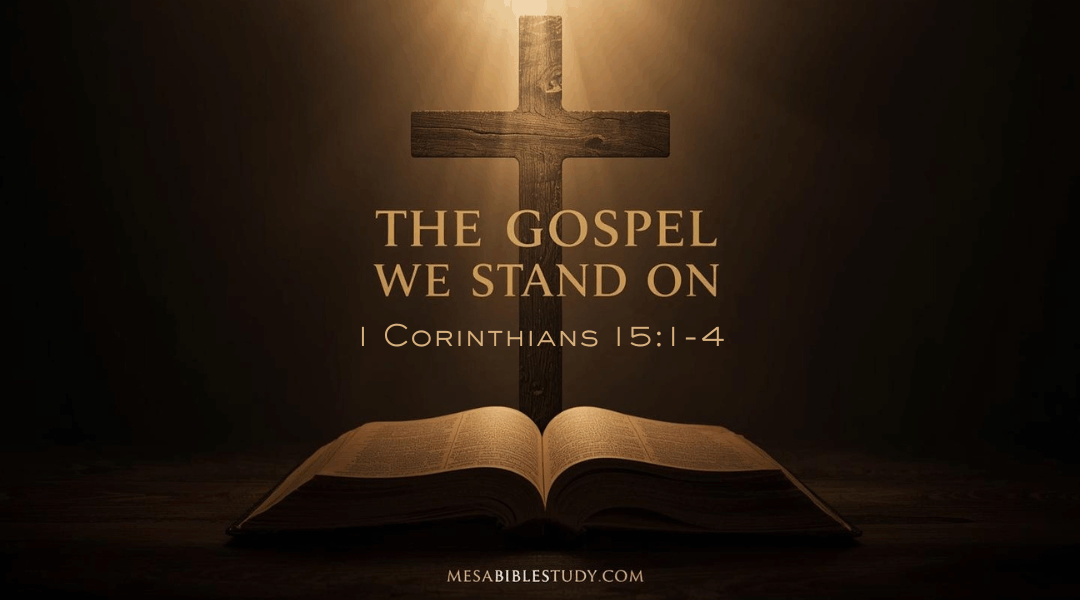
by Jamie Pantastico | Dec 3, 2025 | Israel and Bible Prophecy |
📖 Passage Breakdown — Jeremiah 33:6–7
“Behold, I will bring it health and healing; I will heal them and reveal to them the abundance of peace and truth. And I will cause the captives of Judah and the captives of Israel to return, and will rebuild those places as at the first.”
💡 A Note on the “I Wills”
In Jeremiah 33:6–9, God repeats the phrase “I will” more than a dozen times. This is covenant language. When God says “I will,” it is not a wish, a hope, or a possibility—it is a promise. Each “I will” is God staking His own name, character, and faithfulness on what He has declared. These verses are not conditional, not dependent on Israel’s performance, and not symbolic. They are God’s personal guarantees of Israel’s future healing, forgiveness, restoration, prosperity, and glory. When God says “I will,” the only possible outcome is He will.
📜 Background, Setting & Purpose
✍️ Author
Jeremiah the prophet — chosen before birth, faithful in a ministry marked by tears, rejection, and judgment.
👥 Written To
The people of Judah and Jerusalem, the southern kingdom, facing destruction, exile, and the loss of their national life.
⏲️ When
~586 B.C., during the final siege of Jerusalem. Jeremiah received this word while imprisoned in the court of the guard (Jer. 33:1).
🌍 Setting & Purpose of Jeremiah (book-level)
Jeremiah announces:
- Judah’s coming judgment
- The Babylonian captivity
- The failure of kings, priests, and prophets
- The reason for God’s wrath (idolatry, injustice, covenant-breaking)
Yet in the midst of judgment, Jeremiah 30–33 — The Book of Consolation — reveals Israel’s future hope: restoration, spiritual cleansing, regathering, a new covenant, and the reign of the Righteous Branch.
📖 Chapter 33 Focus
God promises:
- Restoration of Jerusalem
- Rebuilt cities
- Spiritual and national healing
- The reunification of Judah and Israel
- Kingdom blessings under Messiah
- The unbreakable certainty of the Davidic and Levitical covenants
Verses 6–7 begin the restoration promises.
✨ Phrase-by-Phrase Breakdown
“Behold, I will bring it health and healing…”
“It” = Jerusalem and Judah (cf. v.4).
God Himself intervenes. This is not poetic but literal national healing:
- Healing of the land
- Healing of the people
- Healing of the nation
- Healing of the relationship between God and Israel
Cross-refs: Jer 30:17; Hos 6:1–2.
“I will heal them…”
This goes beyond political restoration.
Israel’s spiritual wound (unbelief) is healed only when:
- They look on the One they pierced (Zech 12:10)
- The Lord removes their blindness (Rom 11:25–27)
- The New Covenant is applied nationally (Jer 31:31–34)
This has not yet occurred. But it will..
“and reveal to them the abundance of peace and truth.”
Peace (shalom) and truth (’emet) are kingdom realities:
- Peace among nations (Isa 2:2–4)
- Peace in the land (Ezek 34:25–28)
- True knowledge of God throughout the earth (Isa 11:9)
Today Israel experiences hostility — this verse points to future millennial conditions.
“And I will cause the captives of Judah and the captives of Israel to return…”
Both kingdoms (north and south) regathered.
Not merely Babylon (only Judah), not 1948 alone — but the final, global, God-orchestrated regathering described in:
- Deut 30:1–5
- Ezek 37:21–23
- Matt 24:31
This occurs after the Tribulation, at Messiah’s return.
“and will rebuild those places as at the first.”
Literal rebuilding of:
- Cities
- Homes
- Streets
- Farmland
- Jerusalem itself
Amos 9:11–15 and Jer 31:38–40 confirm this physical, earthly restoration.
This is kingdom prophecy — not fulfilled in the Church, not spiritualized, and not yet realized.
❌ What This Does Not Mean
- Not the Church receiving Israel’s promises.
- Not a metaphor for spiritual blessings in the age of grace.
- Not fulfilled by the return from Babylon — that restoration was partial and temporary.
✅ What It Does Mean
- God will literally restore Israel’s land, people, and cities.
- Spiritual renewal and national healing await Israel’s future repentance.
- Judah and Israel will be united again under Messiah.
- The peace promised here is kingdom peace, not Church-age experience.
- God is not finished with Israel; He is preparing her for glory.
🔗 Cross-References for Going Deeper
Jer 30:17 — Healing promised.
Jer 31:31–34 — New Covenant for Israel.
Ezek 36:24–28 — Cleansing + regathering.
Ezek 37 — One nation under one Shepherd.
Rom 11:25–27 — Israel’s future salvation.
Zech 12:10 — National repentance.
🙏 Takeaway
Jeremiah 33:6–7 reminds us that God’s promises to Israel are not broken. Even as judgment fell, God spoke hope: healing, truth, peace, rebuilding, and restoration. The same God who disciplines also restores. Nothing — not exile, not unbelief, not centuries of dispersion — can cancel His covenant faithfulness.
If God is faithful to His promises to Israel—even after centuries of rebellion—then you can rest in His promises to you in Christ. His plans cannot be overturned. His Word cannot fail. And His mercy always has the final word.
When God says “I will,” the only possible outcome is He will.
🔗 Continue the Jeremiah 33 Study
This Passage Breakdown is part of a two-part study on Jeremiah 33:6–9.
Use the links below to keep reading:
➡️ Part 1 — Jeremiah 33:6–7: Israel’s Future Healing and Restoration
➡️ Part 2 — Jeremiah 33:8–9: Israel’s Cleansing, Forgiveness, and Future Glory
Together, these verses reveal God’s unbreakable covenant faithfulness and His future plans for Israel under Messiah’s kingdom.

by Jamie Pantastico | Dec 1, 2025 | Israel and Bible Prophecy |
🔷 Quick Note
It is crucial to read the Bible knowing it is a progressive revelation.
Today we understand the gospel of grace because it was revealed through Paul —
salvation by the finished work of the cross, offered freely to all who believe (Eph. 3:9–11).
But in time, this is what Israel knew. Because this was all that God had revealed at this particular time in Biblical history.
This is what they were promised.
This is what they were waiting for.
This was prophecy to Jews for Jews not Gentiles (not yet).
📜 Background, Setting & Purpose
✍️ Author:
Isaiah the prophet
👥 Written To:
Israel — God’s covenant people, the chosen nation through whom redemption and kingdom blessings would come.
📅 When:
Approx. 740–700 BC
🌍 Setting & Purpose of Isaiah:
Isaiah writes to a spiritually rebellious yet beloved nation — Israel, chosen by God, disciplined by God, yet never abandoned by God. Within warnings of judgment, Isaiah is also given breathtaking prophecy about Israel’s future Redeemer-King, the One who would rule the world and sit upon David’s throne.
Isaiah 9:6 sits as a mountain peak of prophecy, announcing the birth of the promised Messiah — not as a man alone, but as God Himself in flesh, the fulfillment of the Abrahamic and Davidic Covenants.
This is progressive revelation in motion. Israel does not yet see the cross, the mystery, or the timeline — but they are told who is coming, whose Son He is, and what He will be.
🔍 Isaiah 9:6
“For unto us a Child is born,
Unto us a Son is given;
And the government will be upon His shoulder.
And His name will be called
Wonderful, Counselor, Mighty God,
Everlasting Father, Prince of Peace.”
✨ Phrase-by-Phrase Breakdown
“For unto us a Child is born…”
- “Us” = Israel.
- God is speaking to the nation He elected (Isaiah 41:8–9).
- This Child is Israel’s promised Messiah — a real birth in human history.
“Unto us a Son is given…”
- A Son — not created, but given.
- This speaks to His eternal preexistence (Micah 5:2; John 1:1).
- Israel would receive Him first — He is their promised King, the fulfillment of prophecy.
“And the government will be upon His shoulder.”
- Not spiritualized; a literal government, a literal kingdom.
- He will physically rule from Jerusalem (Isaiah 2:2–4; Zechariah 14:9,16).
- This connects directly to:
- Genesis 3:15 — the promised Seed
- Genesis 12:1–3 — Abrahamic Covenant
- 2 Samuel 7 — the eternal throne of David
“His name will be called…”
Each title reveals His identity — not poetry, but theology.
🌟 Wonderful
- Full of wonder — supernatural, miraculous, unlike any other.
- His works and words caused amazement everywhere He walked (Luke 4:22).
📘 Counselor
- The source of perfect wisdom (Colossians 2:3).
- He needs no advisors — He is the wisdom of God (1 Corinthians 1:24).
⚔️ Mighty God (The cornerstone truth)
- The Child is God.
- Not “godlike” — God in flesh, the exact nature of deity.
- John 1:14 confirms what Isaiah foresaw — the Word became flesh.
⏳ Everlasting Father (Father of eternity)
- Not confusing Persons of the Trinity — but identifying His eternal deity.
- The Son is the source of life, the origin of time, the creator of all (Col. 1:16–17).
🕊 Prince of Peace
- The One who will end war, break the curse, and reign with justice.
- The peace longed for by Israel — and one day by the nations.
❗ Why This Verse Matters — Especially at Christmas
Isaiah doesn’t give Bethlehem.
He doesn’t describe the cross.
He doesn’t reveal the mystery revealed later to Paul.
But he proclaims something earth-shattering:
Israel’s coming King would be born as a Child — yet He would be God.
This is Christmas in prophetic form.
This is Deity wrapped in flesh.
This is Jesus — the Creator who stepped into His creation.
🕯 Devotional Summary
Isaiah 9:6 is not generic Christmas poetry.
It is Israel’s covenant announcement.
Their Messiah would come.
He would rule.
He would be God in flesh.
And though Israel rejected Him at His first coming, God’s covenant stands.
The Child they awaited will return — not to a manger, but to a throne.
Until then, we worship with wonder.
The Child born in Bethlehem is the Eternal God.
The Son given to Israel is the Savior of the world.
And the King foretold will reign — just as God promised.
Do you believe?

by Jamie Pantastico | Nov 30, 2025 | Pauline Theology |
The gospel — simple, final, complete. 1 Cor. 15:1–4.
The Foundation of Salvation — the Only Message That Saves
There are passages in Scripture that rise like mountains — immovable, unshakable, untouchable by the doctrines or traditions of men.
1 Corinthians 15:1–4 is one of them.
Paul writes:
“Moreover, brethren, I declare to you the gospel which I preached to you, which also you received and in which you stand,
by which also you are saved…”
(1 Corinthians 15:1–2)
Before we go further, notice something essential:
⚠ The gospel is not everything in the Bible.
⚠ Not every passage in Scripture is the gospel.
⚠ The gospel is a specific message — the message that saves.
It is defined.
It is singular.
It is final.
And Paul gives it plainly — without symbolism, without parable, without theological gymnastics.
The bottom-line is all mankind will be judged by Paul’s gospel.
‘in the day when God will judge the secrets of men by Jesus Christ, according to my gospel.’ Romans 2:16
📍 The Gospel Defined
“…that Christ died for our sins according to the Scriptures,
and that He was buried,
and that He rose again the third day according to the Scriptures.”
— 1 Corinthians 15:3–4
This is the gospel.
Not your works.
Not your righteousness.
Not repentance plus performance.
Not law-keeping, sacrament-keeping, or commandment-keeping.
Just Christ.
Christ died for our sins.
Because we could not remove them.
He was buried.
Because sin was dealt with completely.
He rose again.
Because God accepted the payment in full.
This is not part of the gospel —
This is the gospel.
📍 The Gospel Saves — Nothing Else Can
Paul says:
“By which you are saved…” (1 Corinthians 15:2)
Not helped. Not improved. Saved.
Once for all. Fully. Eternally.
And then God nails the point down in Romans 1:16:
“For I am not ashamed of the gospel of Christ,
for it is the power of God unto salvation
to everyone who believes…”*
— Romans 1:16
🔥 The power of God unto salvation — not religion, not reform, not effort.
🔥 To everyone — no category excluded.
🔥 Who believes — not believes and works, and obeys, and endures. Just believes.
Anything added to faith is unbelief.
Anything added to grace destroys grace.
Anything added to the gospel corrupts the gospel.
Ephesians 2:8–9 echoes like thunder:
“For by grace you have been saved through faith…
not of works, lest anyone should boast.”
Salvation is not what we do for God. It is what God has done for us through Christ.
📍 Why This Matters
Many things are preached today.
Many messages stir emotions, inspire morality, or demand religious effort.
But only one message saves.
A lifetime of church attendance saves no one.
Generosity, devotion, repentance, passion — none take away sin.
The gospel is not about the believer’s ability — it is about the Savior’s accomplishment.
💥 Only the gospel saves.
💥 Only the cross saves.
💥 Only Christ saves.
This is the message the world hates.
This is the message religion complicates.
This is the message God elevates.
Simple. Final. Complete.
📍 Stand in the Gospel
Paul says this is the gospel “in which you stand.”
Not wobble.
Not hope.
Not work toward.
Stand.
Because salvation is settled.
Peace with God is finished.
The wrath is gone, paid in full by the blood of the Lamb.
You do not stand on your performance —
You stand on His resurrection.
**This is the gospel.
This is our foundation.
This is our hope, peace, and life.**
Believe it — and you are saved.
Not later.
Not gradually.
Now. Forever. Completely.
Stand in this truth:
Christ died.
Christ was buried.
Christ rose again.
And that is enough.

by Jamie Pantastico | Nov 28, 2025 | Devotionals |
Psalm 103:1–5 “Bless the LORD, O my soul… and forget not all His benefits.”
Gratitude grows by remembering.
David doesn’t tell his soul to feel thankful — he tells it to remember. Why?
Because gratitude is a deliberate act, not an automatic response.
Our flesh forgets.
Our minds wander.
Our hearts drift.
That’s why David pulls his soul back to the truth:
- He forgives all your iniquities
- He heals your wounds
- He redeems your life from destruction
- He crowns you with lovingkindness and tender mercies
- He satisfies you with good things
These are not temporary blessings — these are eternal realities.
Thankfulness flourishes when we choose to reflect on the goodness of God.
The more you remember, the more you will worship.
The more you worship, the more your heart will overflow with gratitude.
Gratitude is not something you visit — it’s something you cultivate.
As this Thanksgiving week ends, carry this truth into every day that follows:
A thankful heart is a strong heart — and a strong heart is a heart fixed on Christ.

by Jamie Pantastico | Nov 27, 2025 | Devotionals |
1 Thessalonians 5:18 — “In everything give thanks; for this is the will of God in Christ Jesus for you.”
On Thanksgiving Day, believers gather with family and friends for food, fellowship, and reflection. But Paul gives a command that goes far deeper than a holiday moment:
“In everything give thanks…”
Not “for” everything — but in everything.
Why the distinction?
- Because not everything that happens to us is good.
- Not every circumstance is pleasant.
- Not every season is easy.
But God is good in all things.
To give thanks in everything is to acknowledge that:
- God is sovereign over your situation
- His grace is sufficient
- His purpose cannot fail
- His presence never leaves
- His promises stand firm
- His love is unchanging
This is not denial — it is worship.
Paul says thanksgiving is the will of God for believers. Not misery. Not fear. Not confusion. But gratitude.
Thankfulness is the believer’s declaration that God’s goodness outweighs life’s burdens.
Today, whether your heart feels full or heavy, choose gratitude. Give thanks not because everything is perfect — but because your God is.




